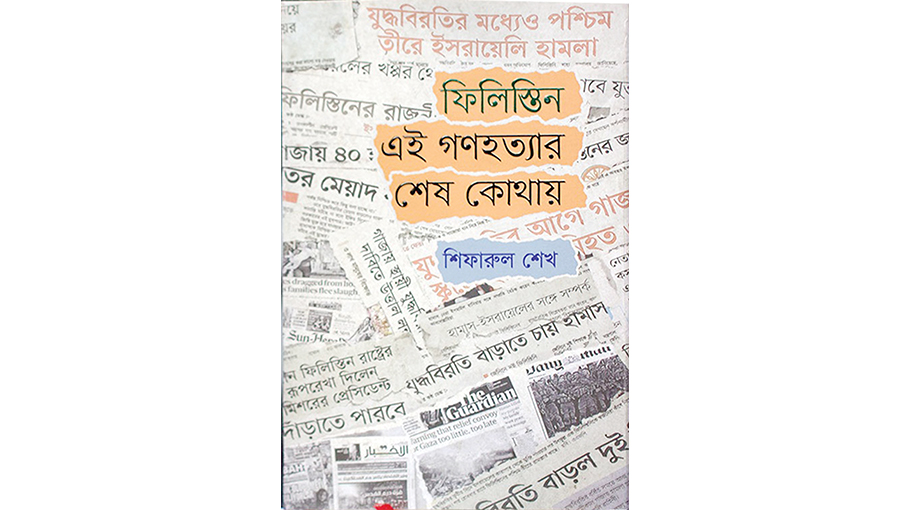Philistine: Ei Gonohottar Shesh Kothay
Through the Journalist's Lens: The long journey of Palestinian suffering: from history to present struggles

In a comprehensive analysis spanning centuries, a new book sheds light on the tumultuous history and ongoing struggles of the Palestinian people. Authored by Shefarul Sheikh ,the book delves into the roots of Palestinian suffering, tracing it back to the 18th century and the advent of Napoleon Bonaparte's colonization of Palestine with the aim of establishing a homeland for Jews. The books associated with 41 chapter including several topics based scrupulous analysis make the reader satisfied regards the ongoing highly talked Palestinian suffering, from history to present struggles and cause and effect behind the scenario
The narrative unfolds with the rise of Zionism in the late 19th century, fueled by increasing anti-Semitism in Europe. Theodor Herzl's seminal work, "The Jewish State," marked the beginning of organized Zionist efforts, culminating in the 1905 Seventh Zionist Congress's call for a Jewish state in Palestine.
The pivotal role played by the Rothschild family in financing Jewish settlement and the Balfour Declaration of 1917, which endorsed the establishment of a Jewish homeland in Palestine, are highlighted as significant milestones.
The book meticulously examines the complexities of the Israeli-Palestinian conflict, exploring how religious justifications and geopolitical interests have shaped the trajectory of the region. Despite, initial aspirations for a secular state, Israel's evolution into a predominantly Jewish state and the subsequent displacement and marginalization of Palestinians are scrutinized.
Chronicling the series of wars and conflicts, including those in 1948, 1967, and 1973, the book underscores the enduring plight of Palestinians striving for self-determination. The ongoing cycle of violence, characterized by Israeli occupation and Palestinian resistance, is vividly portrayed with the Palestinian territories depicted as virtual open-air prisons.
Moreover, the book critically examines the role of the international community, particularly Western powers, in perpetuating the status quo. Despite, the proliferation of human rights organizations and the United Nations, the reluctance of western nations to challenge Israeli policies underscores the geopolitical complexities at play.
The author contends that a lasting solution to the Israeli-Palestinian conflict hinges on addressing fundamental issues of democracy, human rights, and freedom of expression. Drawing on sociologist Karl Marx's critique of democracy as a tool of imperialism, the book calls for a paradigm shift away from dualistic approaches and towards a genuine commitment to justice and equality for all parties involved.
With its comprehensive exploration of historical narratives, geopolitical dynamics, and human rights considerations, the book serves as a valuable resource for scholars, policymakers, and individuals seeking a deeper understanding of one of the world's most protracted conflicts. Whether for academic study or preparation for examinations such as the Bangladesh Civil Service (BCS), this timely publication promises to inform and provoke critical reflection on the complexities of the Israeli-Palestinian issue.


